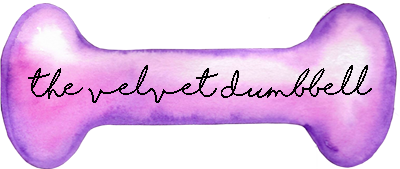This Year
I do not remember many beginnings to the new year. On the first of January there have been mornings where I have looked in the mirror to find a puffy face staring back from the previous night’s celebrations, however it is hard to remember which year. My most memorable New Year’s Eve was in 1999 (Y2K) when I stood in a large crowd fearfully anticipating the end of the world if the digits in the global computer systems did not correctly rollover. After the stroke of midnight, I breathed a huge sigh of relief.
Years into the future, I doubt I will remember the first moments of this new decade. Despite 2020 bringing unwelcome drama around the globe, it finished quietly and without revelry for me. A small bottle of sparkling wine was left empty on the countertop while I watched the ball drop in a socially distanced Time’s Square. I retired to bed early, only to be woken by the sound of fireworks at midnight. Their booming noises mimicked humanity forcefully slamming the lid shut on a year many have described as a dumpster fire.
Ushering in a new year has never been less dramatic while being more welcomed. Then the calamity of January 6th occurred in our nation’s capital leaving us to question whether we have put too much hope into the new start of a new year. If 2020 was a dumpster fire, then 2021 seems to already be gathering its own trash.
With a tumultuous year behind and an uncertain year ahead, it feels strange to get caught up in making resolutions or setting lofty goals when one has to focus on not forgetting to wear their mask, standing six feet apart, and refraining from breathing in any one direction for too long. Perhaps it is for this reason that having something else to put our minds toward can offer a welcome diversion from a world that seems unhinged. Because so much seems out of my control, I yearn to feel in charge of a portion of my life, any portion. Therefore, I am ready for a challenge, even if it is a watered down version of a typical New Year’s resolution.
According to the research of Wharton professor Katherine Milkman, natural breaks in time (example: the outset of a new week, month, year, semester, birthday, or holiday) lead us to think of ourselves as a new person who is capable of making changes. According to her study, “The Fresh Start Effect: Temporal Landmarks Motivate Aspirational Behavior”:
“The popularity of New Year's resolutions suggests that people are more likely to tackle their goals immediately following salient temporal landmarks. If true, this little-researched phenomenon has the potential to help people overcome important willpower problems that often limit goal attainment.
…(T)hese landmarks demarcate the passage of time, creating many new mental accounting periods each year, which relegate past imperfections to a previous period, induce people to take a big-picture view of their lives, and thus motivate aspirational behaviors.”
So if you are eager to tackle a pesky habit or embark on something new, go for it, as the natural momentum of this year’s new “mental accounting period” might lead you off of your phone and sofa and into action.
Recently I read Atomic Habits by James Clear, an author who regularly explores the question, “How can we live better?” Atomic Habits challenged me to evaluate my daily habits, which Clear refers to as the small decisions we make and the actions we perform every day. Upon finishing the book, I was inspired to look further into my life by asking a few questions that James Clear would approve.
Do my habits align with who I am?
Clear proposes that our behaviors are usually a reflection of our identity. Reflecting upon the healthy habits that I already practice, I found this to be true. In areas where I struggle and need to change, I realize that I will be more successful if I let the habits flow from my identity of who I believe I am, or even who I want to be. If I do not like who I am, Clear encourages that, “You have the power to change your beliefs about yourself. Your identity is not set in stone.”
Habits stick the most when they become a part of our identity. And the more pride we have in an aspect of our identity, the more motivated we will be to stick to the habits that are associated with that aspect of our identity.
“Improvements are only temporary until they become part of who you are. The goal is not to read a book, the goal is to become a reader. The goal is not to run a marathon, the goal is to become a runner. The goal is not to learn an instrument, the goal is to become a musician. This year, focus on the identity you want to build.” - James Clear
How Can I Make a Less Attractive Habit Easier to Accomplish?
In order to make some harder-to-do habits more consistent, Clear suggests stacking them with another activity that you find more pleasant. At the beginning of the pandemic I bought a stationary bike. Then a few months ago I bought a bike desk. Now that I have the bike desk, I no longer consider how I might get bored while cycling because I can read the news or write on my laptop which I love to do. Having something enjoyable to look forward to while performing a task that requires much energy gives me less barriers and more motivation to walk downstairs and exercise.
If you have trouble finding motivation in an area that needs improving, consider bundling the thing you want to do (for me: reading or writing) with the thing you need to do (cycling), and hopefully you will not only be more consistent, but the experience will be more enjoyable. Now my only dilemma involves figuring out how to not sweat on the keyboard.
Am I Giving Up a New Habit Too Early?
Clear suggests that habits seem to make no marked difference in our desired outcomes until you cross a threshold from repetition. He says, “In the early and middle stages of any quest, there is often a valley of disappointment. You expect to make progress in a linear fashion and it’s frustrating how ineffective changes can seem during the first days, weeks, and even months.”
We all have experienced making incremental (or even drastic) changes, not seeing a quick enough result, and so we decide to stop. Especially evident in the area of body health, it is common to think, “I have started lifting weights weekly, ran daily for a month, and have reduced my portion sizes, so why can’t I see a change in my body?” This type of thinking often leads us to ease up on our good habits or quit altogether.
Clear goes on to propose that in order to see a real difference, our good habits need to continue long enough to break through a plateau and unleash a major change. However, the difficulty (and mystery) is that we do not know how many repetitions we have to log before that moment occurs.
“When nothing seems to help, I go and look at a stonecutter hammering away at this rock, perhaps a hundred times without as much as a crack showing it it. Yet at the hundred and first below it will split in tow, and I know it was not that last blow that did it-but all that had gone before.” - Jacob Riis
In conclusion, as I practically applied Atomic Habits to my life, I realized that the daily (albeit controlled) alcohol habit that I had started at the beginning of Covid-19 did not align with my identity of being a physically and emotionally healthy person. As hard as it was, I decided to stop this habit almost completely.
Along with pairing cycling with writing or reading the news, I have found more ways to make less appealing tasks more attractive by often listening to a podcast while cooking dinner and pouring myself a glass of my new favorite beverage (Laguintas Zero Alcohol Hoppy Refresher) during the dreaded task of cleaning house.
As far as not prematurely giving up on a new habit before I see changes, I have made a shift in my thinking and self talk when I do not see immediate results and that has encouraged me to stick with it longer than usual.
While none of these practices are drastic, they have the power to compound and lead to overall improvement. Even better, they are sustainable. All the best on this journey into a new year!



